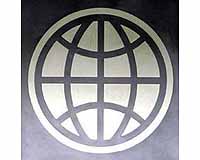| . |  |
. |
Hong Kong (AFP) Jan 24, 2010 Plans by US President Barack Obama to curb risk-taking by banks are unlikely to adversely affect Asia's risk-averse financial institutions, analysts said. The proposed measures, which aim to roll back corporate excesses and limit dangerous risk-taking on Wall Street, could even be beneficial to Asia as US banks may have to move their hedge fund businesses to the region, they said. Obama's plan, described as the largest regulatory crackdown on US financial institutions since the 1930s, would ban the banks from using taxpayers' money to engage in proprietary trading or operating hedge funds and private equity funds. His announcement Thursday sent shockwaves across Asian and European stock markets, as investors worried that it would trigger a domino effect among financial regulators worldwide and affect bank earnings. But banking experts in the region dismissed the market falls as a kneejerk reaction. While banks in Britain and Europe are studying Obama's proposals to see if they should head the same way, analysts said the resilience demonstrated by Asian banks during the financial crisis proved it was unnecessary for regulators to tighten the reins. Shane Oliver, an economist with Australia's AMP Capital Investors, said it was unlikely the regulation of Asian banks would be beefed up. "Asian banks didn't run into the sort of trouble that the US ran into through this crisis and it's unlikely that we'll see radical regulatory change across Asia," he said. "There's no need (for Asia's regulators) to be heavy-handed in the way that President Obama is." Daniel Tabbush, head of regional banks research for Hong Kong-based brokerage CLSA, said except for banking giant HSBC -- which has a major presence in the US -- he did not see any banks in Asia being threatened by Obama's proposals. A spokeswoman for HSBC's Asia Pacific headquarters in Hong Kong said the bank would not comment on the proposals until more details are unveiled. Shinichi Ina, a Credit Suisse analyst in Japan, said that the plan, if passed by the US Congress, would likely be limited to operations in the United States. "For it to take effect in Europe or Japan you'd have to ask cooperation from regulators there and engineer a comprehensive regulation scheme," he said. Although Asia's financial institutions did not escape the worldwide financial crisis completely unscathed, their losses were dwarfed by those suffered by their Western peers -- thanks at least partly to lessons learned from the Asian financial crisis of 1997, which left the region with a more prudent investment approach. Most of the Asian banks are commercial with relatively small investment banking services and very little proprietary trading, according to Billy Mak, associate professor of finance at Hong Kong Baptist University. And unlike many central banks in the West, countries like India and China already have a liquidity requirement in place, he said. Some experts believe that the region's major financial centres, such as Hong Kong and Singapore, could gain from Obama's proposals by inviting Wall Street banks to set up hedge fund and private equity operations in their cities. "Don't underestimate Singapore -- it is extremely aggressive in luring overseas hedge fund businesses," Chan Yan-chong, MBA programme director of City University in Hong Kong, told AFP. The proposed changes could also mean that developing countries would find it easier to borrow from the West. "As US banks will be forced to be less speculative and return to their core business, which is lending, so liquidity will eventually be better for Indonesia," said Fauzi Ichsan, Standard Chartered Bank's chief economist in Indonesia. "It'll be easier for Indonesian banks to borrow money from US banks or international banks. The regulations will help the financial markets here to become more stable."
Share This Article With Planet Earth
Related Links The Economy
 World Bank sees 'signs of bubbles' in Chinese economy
World Bank sees 'signs of bubbles' in Chinese economyWashington (AFP) Jan 20, 2010 The lead author of a World Bank report on the global economy published Wednesday said the bank sees "signs of bubbles" in the Chinese economy, a problem he said the Chinese government acknowledges. "We can already see some signs of bubbles and signs of tensions in the Chinese economy, in particular in the housing sector," said Andrew Burns, head of the bank's macroeconomic forecasting, at a news briefing Tuesday under embargo until the report was released late Wednesday in Washington. ... read more |
|
| The content herein, unless otherwise known to be public domain, are Copyright 1995-2009 - SpaceDaily. AFP and UPI Wire Stories are copyright Agence France-Presse and United Press International. ESA Portal Reports are copyright European Space Agency. All NASA sourced material is public domain. Additional copyrights may apply in whole or part to other bona fide parties. Advertising does not imply endorsement,agreement or approval of any opinions, statements or information provided by SpaceDaily on any Web page published or hosted by SpaceDaily. Privacy Statement |